QuestionI have a German shepherd male puppy 4 and half months old. My problems are following...
1) He pee inside my apartment everywhere. We have a pee place in our balcony and he usually pee there. But he also does it in other place in our home. How should I train him to pee at his pee place only?
2) In night he usually sits in his pee place and so he becomes wet due to his urine. and he smells whole day. As we cannot bath him daily so he smells due his urine covered to his body. How should I teach him not to sit in his pee place and use that space only to pee in night and not to sit there?
2) he usually pass potty(shit) outside our apartment when we take him out. And we take him out early in morning after each feed and in finally in night 11p.m.but his potty time is not predictable. Some time he does it out and some time inside our apartment. How to make him potty only outside our apartment when we take him out.
3) When he do potty inside the apartment he eats his own potty. If we see his potty we immediately remove it but in night and when we are not looking he eats his potty. How to get rid of this habit
puppy feed
I give my 4 mnth GSD puppy 3 time feed daily.and I want to give him home made food only.my questions are following...
1)is chicken byproduct(inner skin,small bones,intestine etc.) /motton byproduct(inner skin,small bones,intestine etc.) are safe for puppy?
2)is it o.k to give only cooked chicken or mutton byproduct.or should I mix it with something?
3)how much quantity of chicken/mutton I should give him in a single feed?
4)can I give him all 3 feed of chicken/mutton byproduct or there shold be one milk feed,one chicken/mutton feed and one pulses feed?
Answer
Hi Vibhor
You need to supervise your puppy, so he doesn't have the opportunity to have accidents in your home. During those times when you're unable to watch your puppy, he needs to be contained in some way so he's unable to soil in your home. Many people use a dog crate for this purpose, or use a child-gate or two as a way to contain their puppy to part of a room.
At just four months old, your puppy needs to eliminate more frequently than an adult dog. He should be given the chance to relieve himself about every 3-4 hours. House training is a very simple concept. It's all about praise, reward, prevention, and containment.
Anytime you aren't able to watch your puppy like a hawk your puppy needs to be in his containment area. He should never have the run of your home, until he's reliably house trained. If you use the child gate option, lay a thick layer of newspaper down over the ENTIRE containment area. As the weeks go by, you may notice a preference developing of where your puppy goes to the bathroom. If you see one spot being used, you can start removing the paper from the other areas, leaving the preferred potty area as the only papered spot. This is rocket science, your puppy may still have an accident on an un-papered area, if this happens, go back to papering the entire containment area.
You need to prevent accidents, that means taking your puppy outside on a leash for walks, and or trips to your balcony. Of the two, leashed walks are better because your puppy will get more exercise from being walked. A well exercised puppy is calmer and has less behavioral issues. Either way, you need to praise and reward your puppy the INSTANT he's finished going to the bathroom outside.
When you reach the toilet area walk back and forth or circle around and around. At the same time say and repeat a cue word you would like to attach to the act of your puppy eliminating. Something like "Hurry Up", or "Go Potty", just pick out a cue word or short phrase and stick with it. In your puppy's mind you are building an association between the cue "hurry up!" and him emptying out. As your pup eliminates continue to repeat your cue word and the instant he finishes "doing his business" enthusiastically praise and reward him. Lavish him with praise and offer a "high value" treat he'll remember, such as a tiny bit of hot dog or a little cheese. He'll remember these extra special treats, and the actions that lead to them!
Immediately after a successful toilet trip outside you can allow your puppy some free play time (under supervision) in the house. Just spend some time enjoying the company of your puppy, then place him back in his crate or pen area.
If you take your puppy outside and he doesn't do "all that he should", take him home and put him in his containment area. You KNOW he has to "go", so don't set him up to have an accident in the house!
After 15 minutes take him outside and give him another chance to relieve himself.
When your puppy isn't in his containment area keep a leash on him. Keep the end of the leash around your wrist, or tie it to a belt loop. When your puppy is literally attached to you, he won't have any opportunities to sneak off and have an accident. If you see him sniffing around, or walking in circles, that's a sign he needs to be dashed outside! Offer praise and a reward when he does as she should outside.
When accidents occur, don't yell at your puppy or punish him. For one thing, unless you catch him right in the act, he won't have a clue why you're yelling at him. Yelling only makes him want to avoid you (he's not stupid after all!) it won't train him into anything, expect to avoid you when he needs to go outside. If you discover an accident, blame yourself for not getting your puppy outside in time, or for not supervising him closely enough. Accidents aren't the puppy's fault, he's not trained after all! Accidents are YOUR fault.
Clean the mess up with an enzymatic cleaner, such as Nature's Miracle or Simple Solution, so your puppy won't be attracted back to the spot to have another accident. Promise yourself you'll keep a close eye on your puppy in the future.
Dogs and puppies sometimes develop the habit of eating their own waste. It can be a sign of a nutritional deficiency, or it can be simple boredom. When you leave your puppy alone for any length of time you should be sure to leave him with several interesting dog toys to occupy his time. A guaranteed way of preventing this habit is to promptly pick up your puppy's waste.
Many dog and puppy foods contain by-products. There are two schools of thought when it comes to by-products in dog food. Some say that because a dog in the wild would eat the entire animal when killing prey, including skin, organs and bones, some amount of by-products in dog food is just fine. What you don't want is unidentified by-products, often listed as "meat by-products", rather an identified animal such as Chicken or Lamb. The other school of thought is that by-products should be avoided entirely, and that a dog's diet should contain meat, vegetables and absorbable grains. It's simply too hard to know what exactly is included in by-products, and some say that these unwanted animal parts may contain bacteria or even parts from cancerous animals. My personal feeling is to buy the very best pet food you can afford, and to try to avoid all by-products and other unwholesome ingredients.
Dogs and puppies need more than meat to be healthy. Unlike cats, who need high amounts of protein and no carbohydrates at all, dogs need a diet that contains carbohydrates. For an active growing puppy, it should receive a diet that's at least 24% protein, 14% fat, 32% carbohydrates. Here are two sites that have simple dog food recipes:
http://pets.iloveindia.com/dogs/homemade-dog-food.html
http://www.safe-dog-food.com/puppy-food/puppy-food-recipe.html
My personal feeling is that your veterinarian should approve any homemade diet you plan on feeding your puppy. If you decide to give your puppy a homemade diet, gradually introduce the new food by mixing just a little at a time, in with your puppy's old food over a period 5-7 days, until you've switched your puppy to just the new food. Do this over a period of 5-7 days. Dogs and puppies who have their diet abruptly changed can get an upset stomach or diarrhea.
If you make your own puppy food you won't have the feeding guidelines on a package to tell you how much to feed. As a future large breed dog, your puppy is growing quickly and you don't want to stress his bones. I recommend you ask your veterinarian to advise you how much of any homemade diet to feed your puppy. You simply do not want to get this wrong, it's too important for a growing puppy to receive the correct nutrition.
If you have no choice but to buy a puppy food that contains by-products, supplement your puppy's diet with a little fresh meat or fish (no bones from either). This doesn't have to be expensive cuts, even the cheapest cuts of human grade meat will be a welcome healthy supplement to your puppy's diet. Small amounts of fresh fruit or vegetables also can be safely given to your puppy. I say small amounts only because too much can cause diarrhea, especially if your puppy isn't used to eating them. Carrots, apple wedges (no seeds) bits of banana, peach, berries, mango, broccoli, beans, spinach are all safe for dogs to eat. Many dogs LOVE these, and enjoy them as low fat treats. Just start out slow, and see how your puppy tolerates it.
Don't feed your puppy milk, and only small amounts of dairy products. Once a puppy is weaned, milk can cause diarrhea.
I hope I've been a help.
Best of luck,
Patti

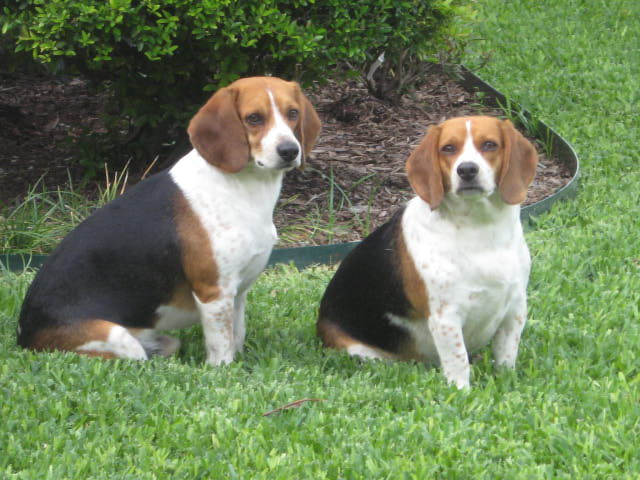 Dry Dog Foods
Question
Prince Duke & Princess
I have two B
Dry Dog Foods
Question
Prince Duke & Princess
I have two B
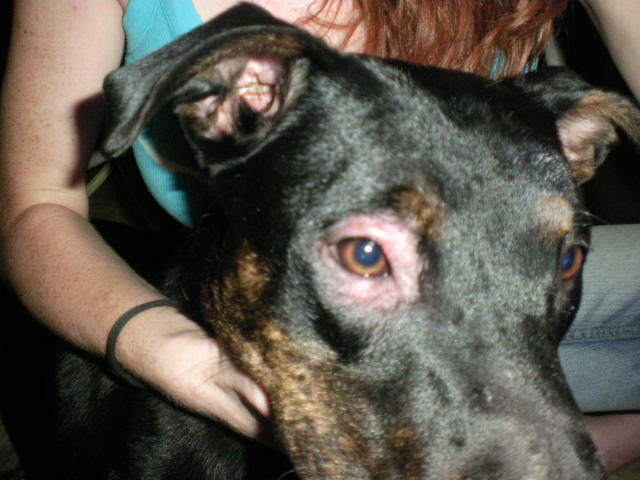 7 month old blue healer mix (Cloe)
Question
cloes right eye
Cloe was having really bad eye
7 month old blue healer mix (Cloe)
Question
cloes right eye
Cloe was having really bad eye
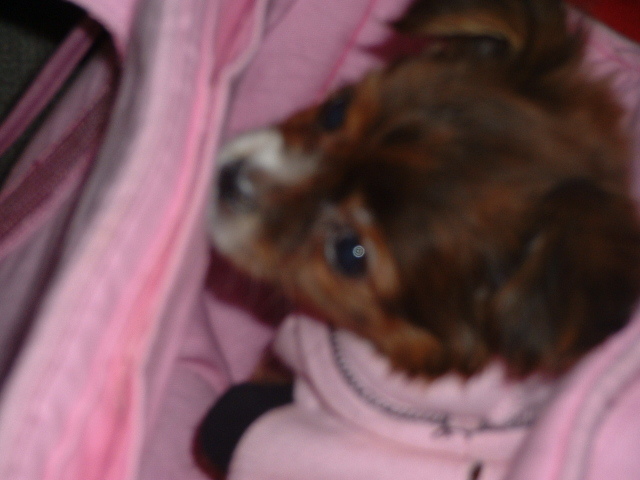 Nutrition & Health
Question
Peek-A-Boo!
Hello! I am new to owning small br
Nutrition & Health
Question
Peek-A-Boo!
Hello! I am new to owning small br
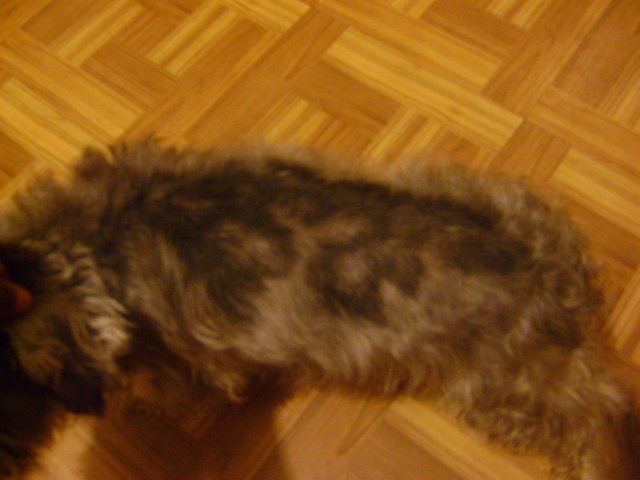 Thining hair on back/back hair darkening
Question
Dogs Back
Please Help!
I have a 4 year miniatu
Thining hair on back/back hair darkening
Question
Dogs Back
Please Help!
I have a 4 year miniatu
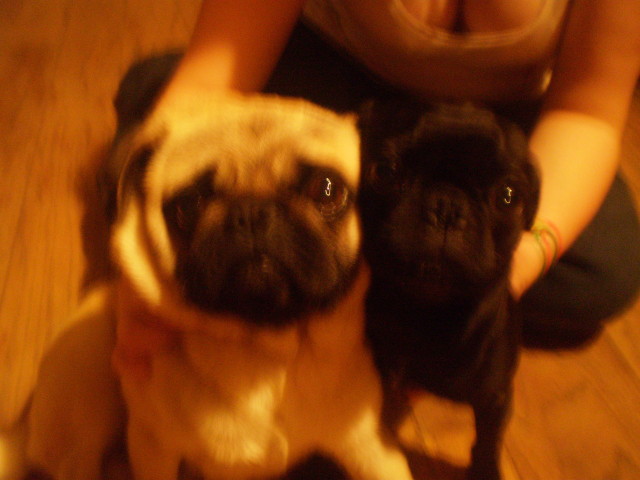 pugs
Question
micah and lacy
my male and female are the same
pugs
Question
micah and lacy
my male and female are the same